Interview by Blake Haney, owner of Dirty Coast. Photos and video by Marc Pagani.
...
Blake Haney: Lauren thank you so much for sitting down to chat. I’m really curious to learn more about how you got started in coffee. I appreciate you taking the time for the interview.
Lauren Fink: Of course.
B: So Nola native or Nola convert
L: Nola convert
B: What Drew you to New Orleans. How did you find yourself?
L: It was kind of just a magical thing. I wanted to move. I was going on a road trip and had everything with me. I stopped in Austin and my sister was going there for a wedding and told me to meet her here. So I went and I was heading up to Nashville, but never made it there.
B: You never made it to Nashville.
L: Never made it there.
B: What could have happened if you had?
L: Who knows?
B: Your owner of Cherry Coffee. You now have two shops and are roasting.
L: Correct.
B: What drew you to coffee?
L: I started working in coffee in Wisconsin when I was 15, but I didn't know a whole lot about was going on. It wasn't until I moved to Portland, Oregon in 2006 when I got a job working in specialty coffee that I gained a whole new level of comprehension of what specialty coffee could be so.
I was hooked.

B: Starting off in coffee here in New Orleans. You didn't have shops first. You had a coffee stand in Stein’s deli filling the void there. How was the beginning of your rapport with customers? What was that like?
L: So that was the best part for me. I was so excited to share different coffees with people and to just like kind of awaken them to a different experience and instead of just looking at coffee more as a commodity. It can be almost like wine, where it has a different character that you can really learn about. What you like, what you don't like. There's so much character out there.
It's really exciting and fun to play around.
B: In order to learn something it's best to teach. Sharing what is possible with great coffee. It's something you can continue to do as you gain your own skillset.
L: The learning never stops, and that's why I love coffee. It's just like what you said, your ability to learn through teaching is what brings a whole new level of understanding with concepts. You really want to reach people, figure out a way to share what you know.
B: So the transition from a stand at Stein's to then opening your first shop, did it happen immediately? Were you looking for a long time? What sort of got you going on having to open your own space?
L: So I am a millennial. I want instant gratification just like everybody, so I wanted my own space the moment I opened in Stein's. I was literally in my head thinking “I'm going to be here six months.” But that's just not possible. You actually have to be in business for two years to get a small business loan at which is what I had to do. So I worked every day it's saved everything and. Got the small business loan and was able to find the space for Cherry coffee, which is on Laurel Street. It's a beautiful firehouse.
That was a whole new set of experiences that I had in developing a team because it was just me before and yeah learning lots of new lessons.

B: Being a business owner myself. There's a lot of learning going from being an independent entrepreneur, who just kind of wants to work for themselves and do their own thing, to then being a boss.
L: I feel like I just got thrust off a cliff into it, but, you know, it takes time. I wasn't skillful in the beginning, you know, there were issues.
I was 26 when I opened our brick and mortar location. And so it was that and learning how to communicate with people effectively. To make them feel like they're heard, but also equally, get what you need out of them.
B: There are two different types of business owners, the folks who ask for help and seek out mentors and answers to their questions and then there's those who figure it out through failure, those who just dive in and make mistakes. Do you find yourself on one side of the spectrum or are you right in the middle?
L: Well, with specialty coffee, you know, there wasn't a mentor here for me, you know, and if there was I definitely don’t know them. The concepts that I've created is through trial and error and they are my own. I've designed them and they make sense to me in the end.
I desperately wanted to learn about extraction when I was working in coffee in Portland and nobody I knew had a really great way of teaching that you know. What balances are and what you're looking for in a good shot.

B: Business owner I know have made a lot of the same mistakes, once you sit down and have a drink with them and share what you are dealing with, this and that problem with an employee or you know, making the mistake of hiring a friend, you realize there is a lot that can be learned by sharing experiences.
L: Right?
B: So the first store is a renovated Firehouse. Did you do the entire renovation yourself or was it already done?
L: No, when I found it on Craigslist, believe it or not, it was brown like dirt. Dirt on the floor still. I did the entire build-out at that location. It was a big undertaking. It's a big space, but it's beautiful. It has a lot of character on its own and I really wanted to maintain that so I feel like it feels that way.
B: How quickly did you get embedded in the neighborhood, like in people's routine for coffee and breakfast.
L: Those folks were there right away.
And I was foolish, when I opened I'd had two people as employees, and I just came out of working at Stein's. I didn't really tell anybody when I was opening. I mean I didn't have a soft opening. The moment I could open I open that next day alone and it was so busy.
It was insane. My friends were coming in to support me, and like, doing dishes or like running bus tables or bus tubs in the back. But yeah, it took off right away. So it really hit the ground running.
B: How quickly after opening the first Cherry coffee did you start planning the second location?
L: Well, I wanted to roast coffee. That was really the next step for me as a coffee professional. So we launched a Kickstarter and we raised $25,000 to buy equipment and start the roasting space. I wanted to roast and wanted a new space for another shop in a neighborhood where we could sell our own coffee.
So I did both of those at the same time, which was a lot for one person, but, you know, I learned a lot fast forward and now I'm roasting great coffee. Yeah, so I feel I feel good about where we're at.
B: How do you distinguish, or how do you try and distinguish what you're doing with your your own blends of coffee versus other coffees that are specifically from New Orleans that you can find in the different shops,
L: The first thing is we don't serve all blends. We have some blends which hold up really nicely with milk drinks, but we showcase single-origin coffee. We want those to be experienced black or as espresso, so you can pour over or have an Americano, but I think that’s what sets us apart. We have a devotion to understanding extraction and balance. I think is what a lot of people don't realize is that there's natural sweetness in espresso and in coffee, you just have to know and understand extraction. Not a lot of people do, it's kind of like a unicorn and so milk and sugar exist because but their not necessary.
Coffee extracted improperly is off, you know, it's either bitter or sour or it's both which is horrible. And so you have to add sweetener or milk which has sugar in it to offset those flavors. If your Barista has an understanding of extraction, you know, you can maintain that flavor and it's a really beautiful experience where you know, it stops people dead in their tracks. They are like “Wow, this was really good.” I think that in today's world anytime you can get anyone to stop and pay attention, or like just be present with anything, for me an espresso can achieve that. That's what motivated me to keep going, experiences like that. And changing people's perception of what coffee could be.
B: Where are you finding answers to some of the questions you have been a business owner running your own brand? Are there specific books or podcasts any sort of other places where you've sought answers or are you just kind of winging?
L: I think I was so busy with operations that I didn't value books or mentors enough in the beginning. I was just trying to get through the day, you know, but when you have the right team, you know, you can create a space where you're not frantic with operations because it's a lot, you know, especially three maintaining three businesses essentially.
B: You're in the throes of just keeping the lights on, right?
L: You know, it's not just keeping the lights on. It's creating the experience that I want to be created. It's very important to me that it's maintained and it's not just customer service, its hospitality. That's hard to teach a barista. Fine dining servers get it, you know. They create an experience for somebody where when you go in, you know you're in good hands. I'm trying to create that with coffee.
B: If you had to describe the ideal customer experience a customer has in one of your shops, what is it? What sort of experience are you hoping for?
L: I want to meet people wherever they are. You know, I don't want to say what you should want. If you want to want to learn about coffee, I’d love to talk about it. If you want to just come in and have a good cup of coffee and not talk about it. I'm going to provide that for you too. If you want to come in and you just want a cappuccino, I'm going to make you the best cappuccino that I can. If you keep coming I'm going to try to wean you off of that drink with just less milk, you know, but I try be approachable. People like things the way they want them, you know, so by meeting them where they're at and slowly showing them what's possible they buy into it.
B: The interior designs of both shops are great. They each have a very distinct character. How did you plan those two spaces?
L: They have a completely different feel. I think the Uptown location is more rustic. It was my first shop. With the second location in the Lower Garden District location, I had a vision.
I have a vision for what Cherry is. We are a luxury brand so I wanted it to feel that way when you walked into that space, you know, and to feel that, this isn't just another coffee shop. This is an experience. I think that by having the red velvet sofa and the green marble, you know.
Serving things in fancy glasses with big cubes, you know just doing tiny little things that kind of makes people be like, “Oh wow. This is a little bit different.” Again, it's just like making you wake up, you know, and just pay attention a little bit.
I get it you go have coffee every day, you know, but if I can get you to pause I think that that's really special and it's good for everybody.
B: You're in The Julian, In the Lower Garden District. It's you and two other women-owned businesses. It's probably the biggest development that's happened in Lower Garden District in its recent history as far as I can tell. What has it been like having space there?
L: So it's interesting because I live in that area and I used to play it was a vacant lot not so long ago. I used to bring my dog there. So I remember when they first started building it, I was very offended. I was like, I can't play there anymore. It's very sentimental to me and I love being a part of that neighborhood.
B: I was there for ten years, 2004 to 2014. I lived on Thalia right next to where there's now our shop. Back in the day, there was definitely more of an edge to it.
L: Right? It's been really interesting to see how it sort of exploded really over the past few years.
B: Absolutely. Where do you want to be? Do you have a plan for one year from now? 3 years?
L: Yeah, my main focus right now is on the roasting operations. I'm using a two-pound roaster and that's a lot of batches of coffee. So we are working towards getting a bigger roaster and getting the packaging that we want, you know, and just really showcasing that were capable of sourcing great coffee. And the transparency and experience in the characters of coffees that were choosing.
In addition to the roasting operations, I really want to, I have a dream of, traveling and doing pop-ups. Either pour-over or espresso parties, or anything. Just like go and be part of something and talk about coffee in places where people don't have to come to find me. You know, I think that where I can have the most valuable is reaching people and getting them excited about coffee, you know, and whatever level, even if they don't want to work in it, you know, just like making it at home and creating that ritual.
So I want to be dedicated to creating that, finding more people, sharing that gift with people because honestly, that's something that they take. Through their life, you know, and they should it's a Snowball Effect because they're so excited about it, they share it with people and my driving force is impacting because the coffee chain deserves that. There's a lot of hard work that goes into it. And I think it's honorable to just be dedicated to proper extraction or roasting. So you're showing honor to everybody who's work through it because there's a lot of hands that touch coffee before it finally gets to the consumer, you know, not a lot of people realize that. So it's really beautiful when it comes together and it's a really good experience.
B: I would imagine taking something that people they have a feel for or like they know and understand and then showing them a different angle or aspect to it is rewarding.
L: Absolutely. Yeah, exactly. So like in addition to meeting with them where they're at and recommending coffees that we think that they would like we also want to show you new things, Maybe get you into something that you didn't know you liked, you know, so I like acidity, for instance, people are so afraid of acidity in coffee and that's because of bad extraction.
The difference between acidity and sours, acidity is balanced by sweetness, like fruit like a good pineapple. It's so good and vibrant and sweet. Espresso and coffee can be like that too, which is really exciting. So just showcasing that and showing people what the possibility could be for the barista side for coffee professionals and also consumers.
B: So being a business owner is very stressful. I know that from personal experience, but I definitely have a meditation practice and journaling and process that I follow, but how do you handle stress?
L: Yeah. So I think exercise for me is a big number one. I feel like it's just a really good way for me to connect my mind and body and get grounded. That's really what meditation is. I think that meditation is awesome. I am on the board of directors for the flowering Lotus, which is a traveling Sangha. There are three-day meditation Retreats that are silent in different locations and different teachers come and lecture and so not only are you like grounding yourself, but you're also working on yourself. When you're sitting on a pillow and there's no one to talk to you know, it's just you, so it really gives you time and space to work to process things. Number one if you move quickly like I do it has benefits. But also to learn, you know. I didn't have a mentor and still, a lot of it is learning but also just knowing what to look for and to actually learn your lesson, you know, and so it gives time for lessons to set in place.
B: For people who don't know, what is this Tsonga?
L: Sangha is Buddhist, it’s like a community, you know, and so it's the first place where I felt like I was a part of something and so yeah, it's just people who are like-minded who meet.
B: I recently read, I went into a skeptical because it was written by Russell Simmons from Def Jam records, who over the past 15 years has become sort of a spiritual Guru some degree in his own sphere of the world. He wrote a book called “Success Through Stillness”, it's pretty fascinating hearing about his experience starting Def Jam records and him very openly in the book talking about hardcore partying and moving very fast and how he discovered that actually sitting down and being one with his own thoughts over time made him way more compassionate for, first himself and then for others. This awareness of self and compassion for others, this slowing down, he believes made him more successful. You don’t have to be busy.
L: Absolutely. Yeah. I think that people are really unaware of your inner dialogue or how you speak to yourself. If you can start picking up on that you can really change how you treat other people. You know, how you treat and talk to yourself is definitely how you are going to talk to other people, you know, and so, meditation was a game-changer for me.
B: Also knowing that everyone else you see on the street, everyone you encounter, they are all dealing with the same stuff.
L: They're all dealing with their own stuff. And you know, you never know what somebody's going through. They just have to put on a face every day. You don’t know how sad they are, if they are struggling, you know, so don't be mean to people unnecessarily.
As a community, we all need to be there for one another and in times like that just kindness is the best thing that you can do, and it's free, and it makes a huge difference. Getting in touch with that is was huge for me. Thankfully I found this a while ago because I was angry and hurt, whatever, people that go through life experiences and they don't ever deal with it. They just carry it, you know, so yeah, it's huge when taking the time to you face it and then you're able to drop the dead weight, you know, just move forward.
B: Start having tools that you can use to help you work through some of those issues that you have.
L: Yeah, I mean it's learning yourself. Yeah, you know just getting to know yourself, and not listen to the stories you tell yourself.
B: Exactly, once you start meditating for a while, having a practice of sitting, whatever it might be. It's like you start . . . Sam Harris had a good quote, that the monkey mind, that ego, that person talking is one of the most boring, boorish people you can meet. They just keep saying the same thing over and over and over again.
It's these narratives. You just keep hearing and you have to actually sit with yourself to finally go, “Oh, wait for a second, this voice in my head, it's not nice.” It keeps saying the same stuff and having that distance from it is, I think, we'll for me, was eye-opening. Realizing, oh, wait a second. This has been going on for years, right? I have a crazy person in my head. And he’s not very nice.
L: And he's bouncing all over the place. Let’s just stay and finish this thought, and like yeah, jumping around like a monkey. It's so true, but, most people just are on that ride, you know. It's like the perception of realizing you're on a ride, you're in control, and you know, you can quiet that voice and that's where peace is. And as a business owner, I want peace. Even if it's for 2 minutes. Meditation is not easy. No. The monks still struggle with counting their breath for 10 breaths. That's all meditation is, being gentle with yourself, redirecting and the determined effort to redirect, start over, be nice to yourself when you mess up.
B: This has been a great conversation. Thanks for taking the time.
L: Yeah. Thanks. Thank you. It was fun.

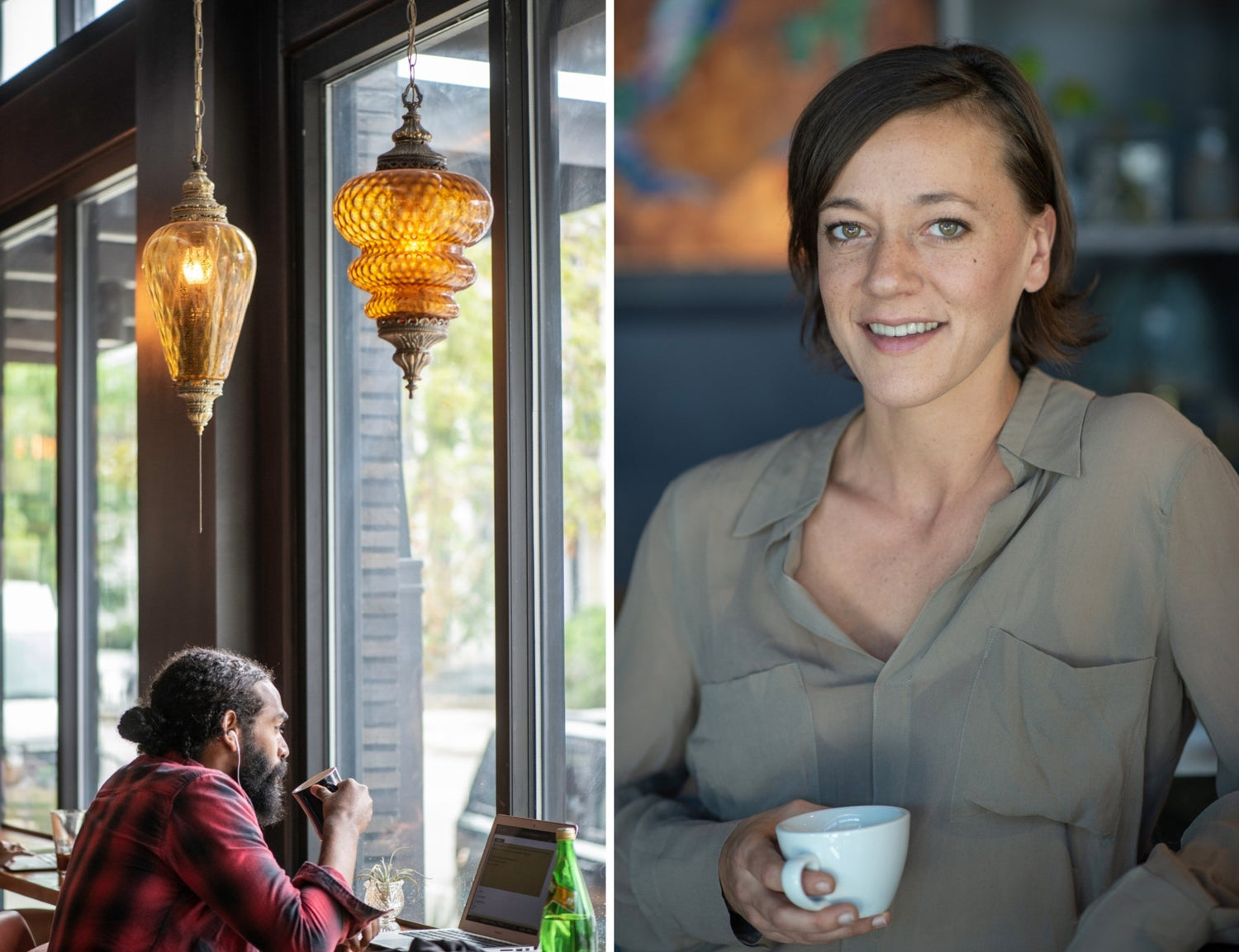
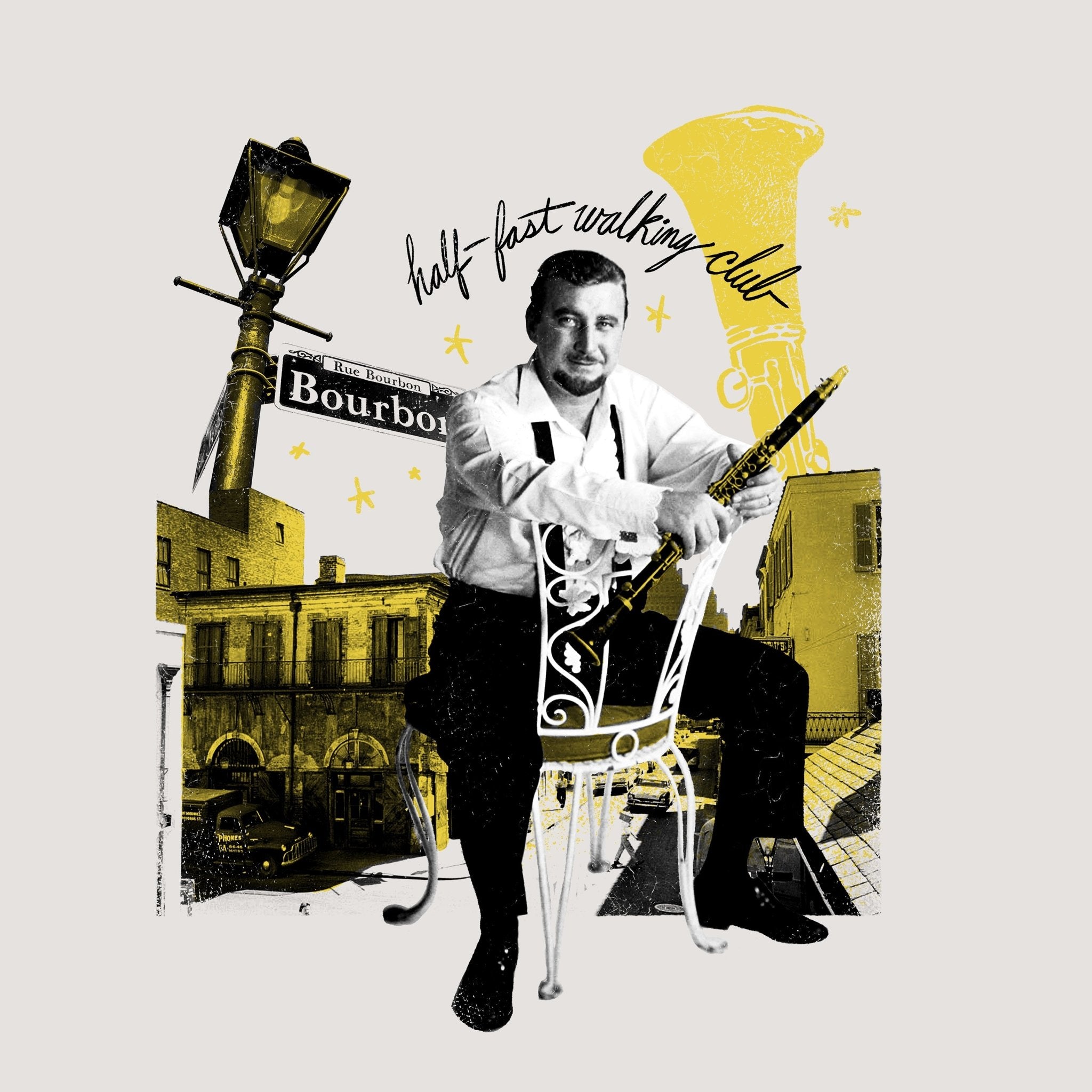
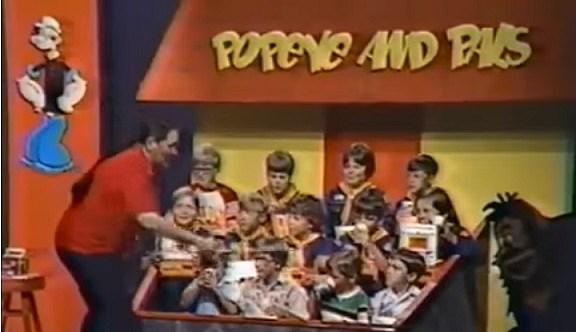
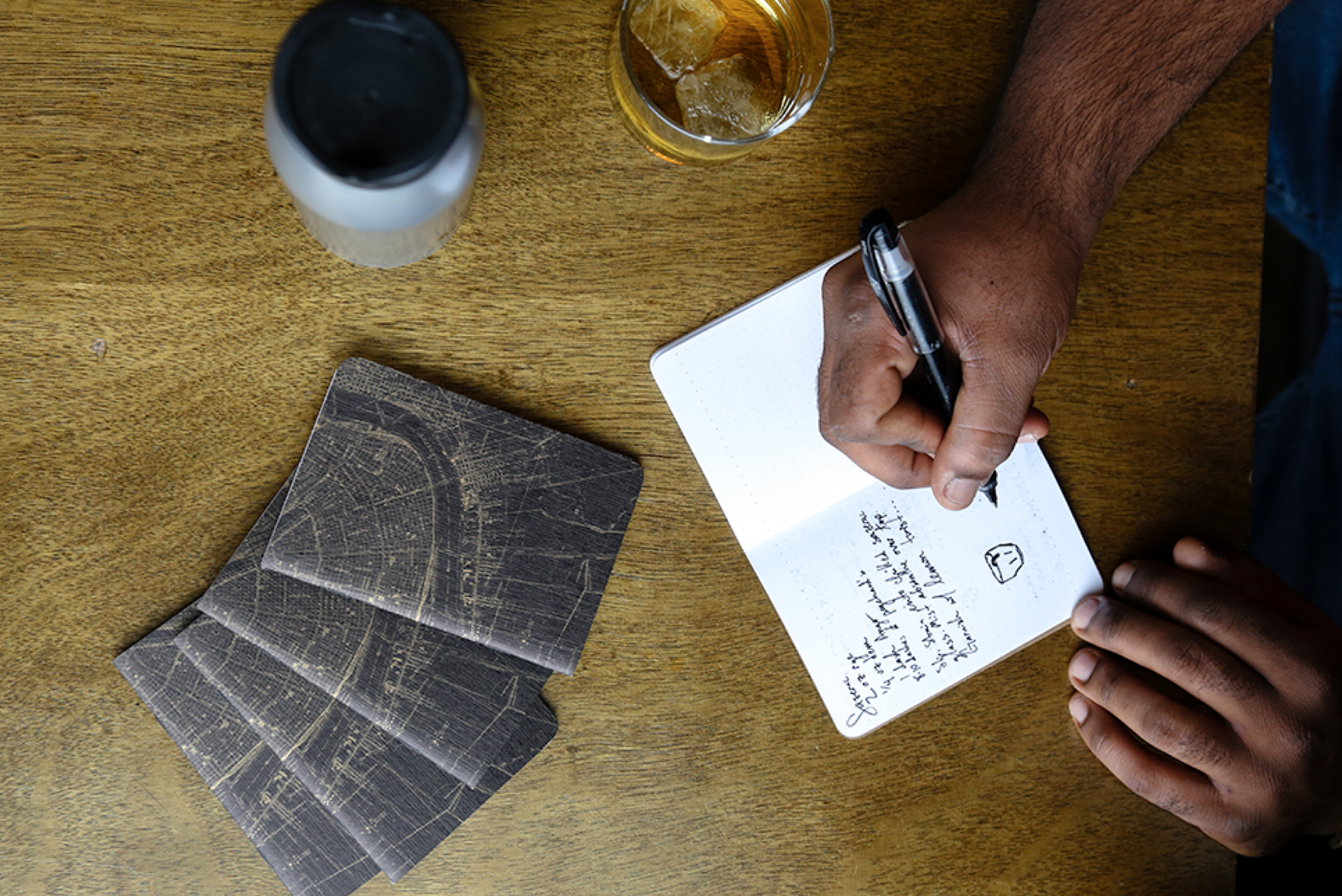
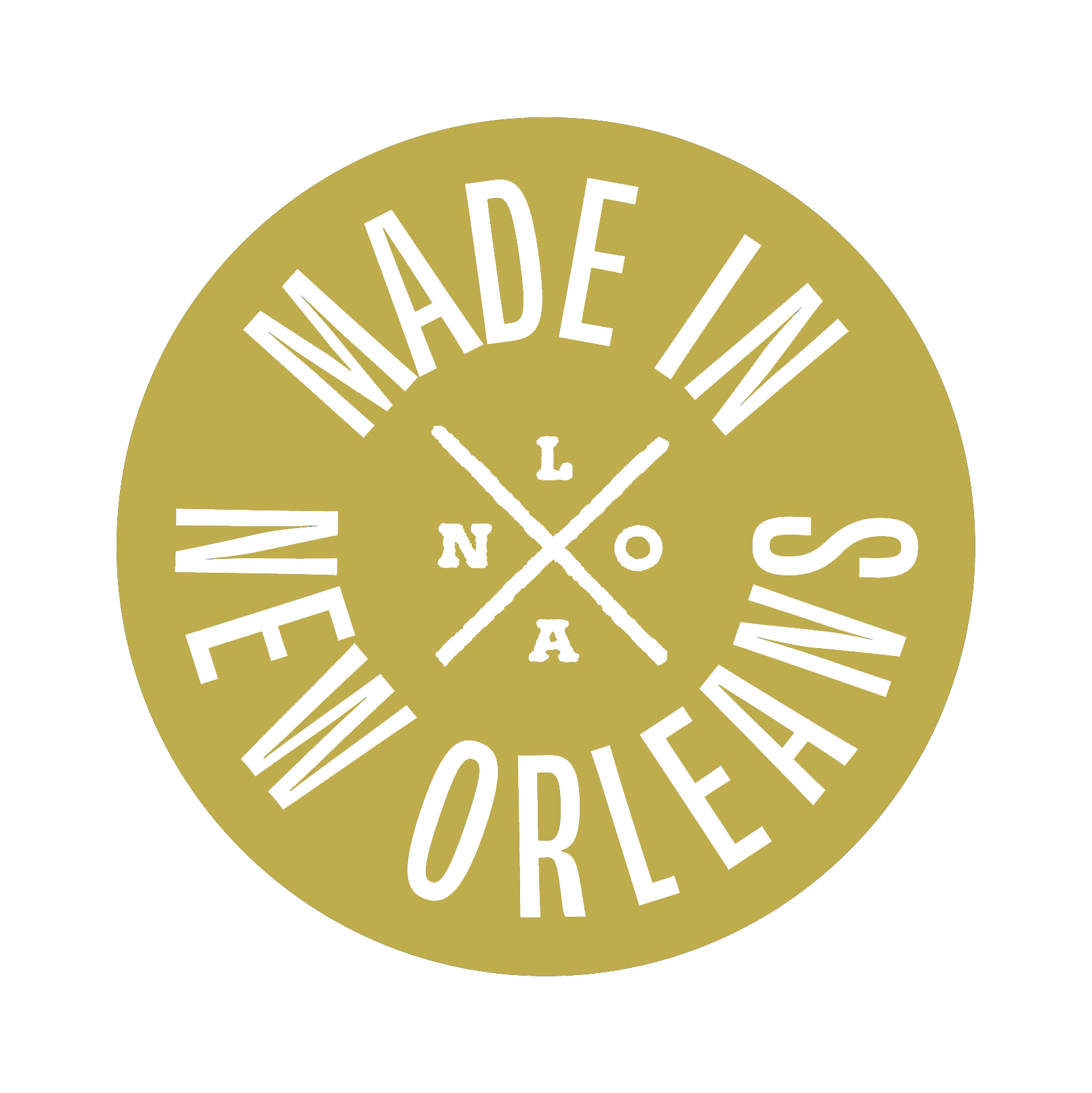
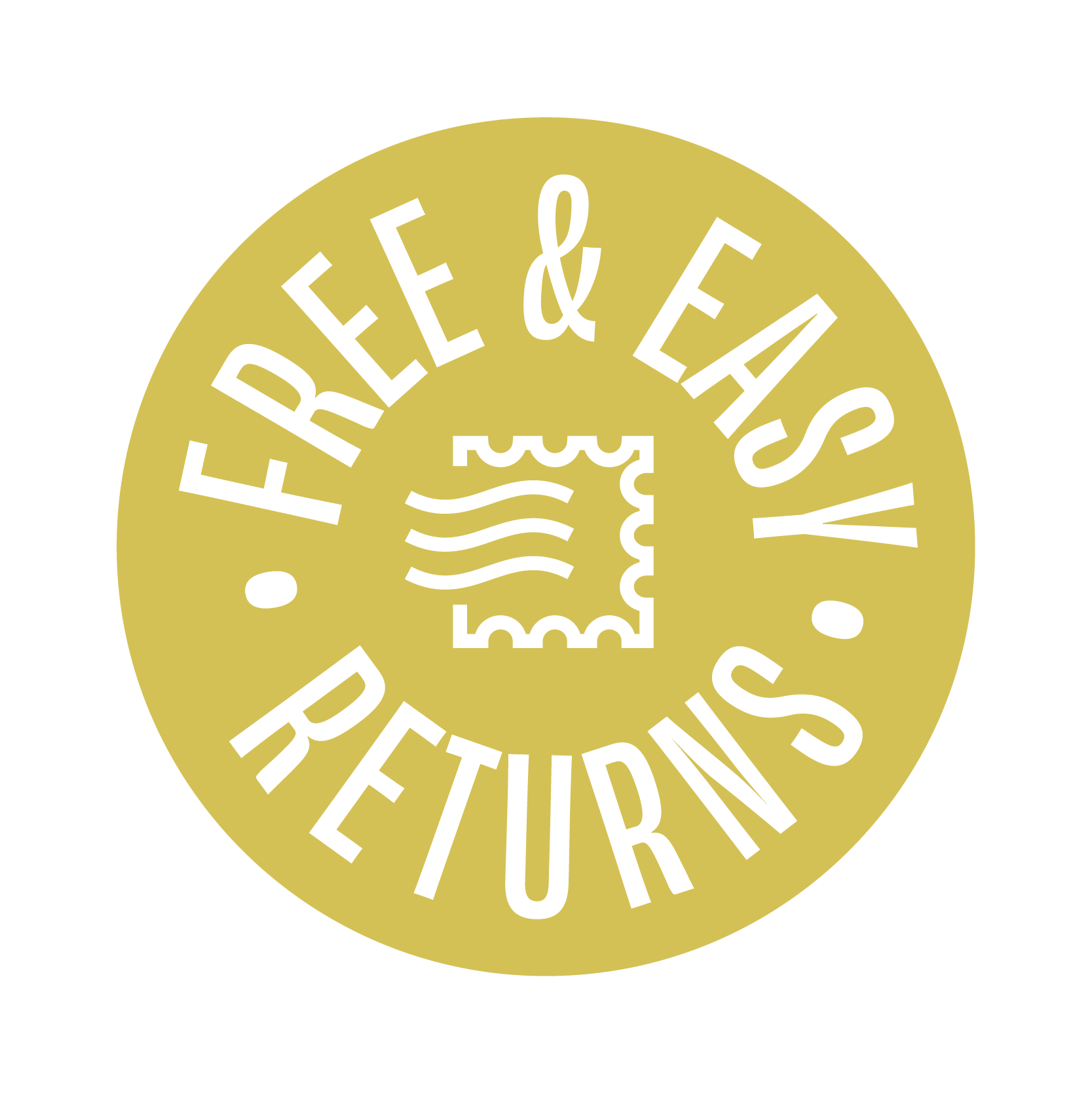
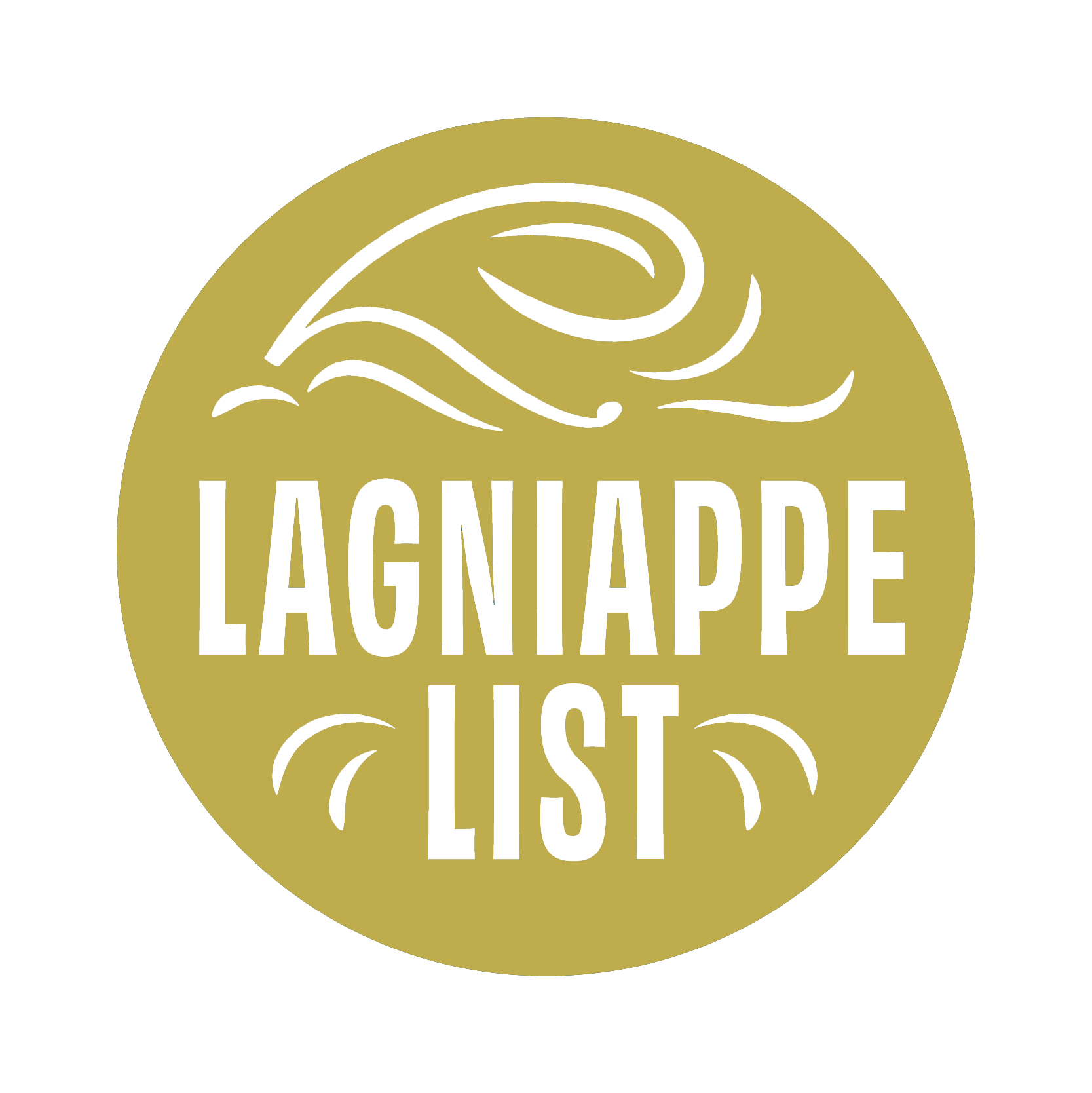
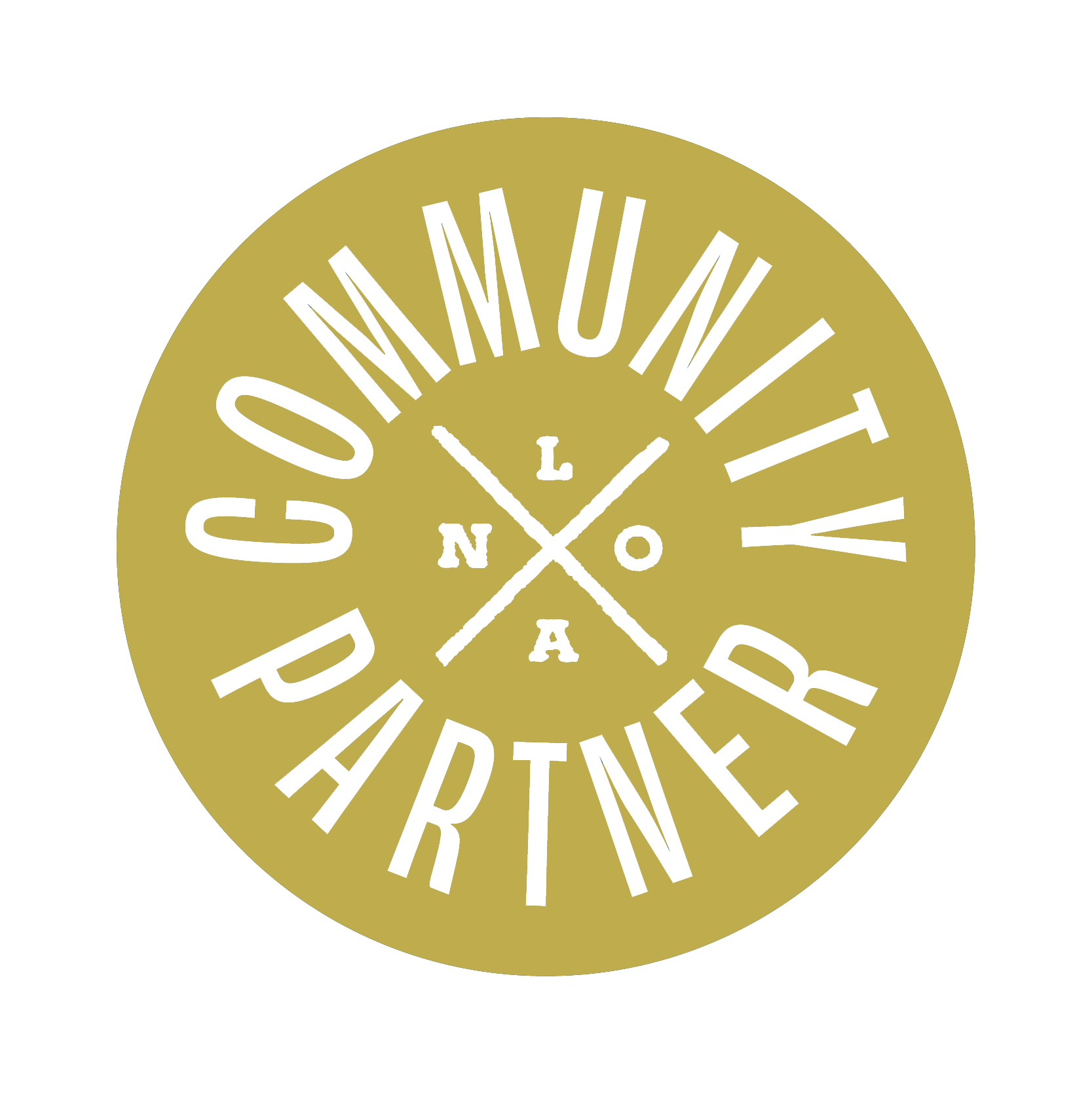
Leave a comment
All comments are moderated before being published.
This site is protected by hCaptcha and the hCaptcha Privacy Policy and Terms of Service apply.